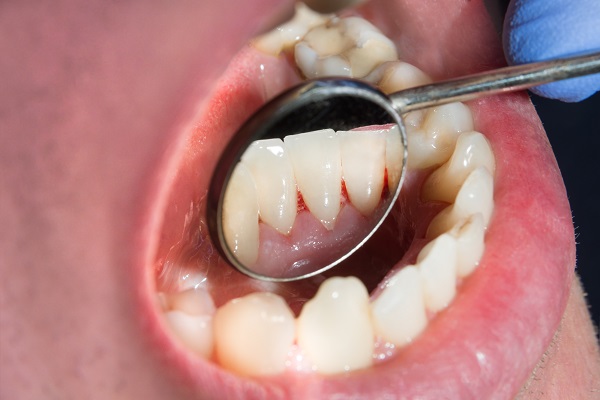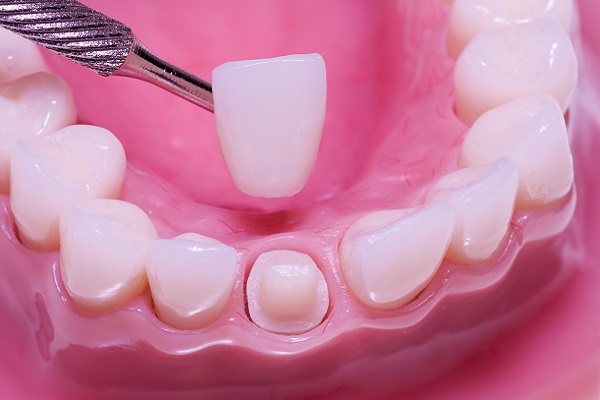Warning Signs of Oral Cancer

Since some of the warning signs associated with oral cancer can be confused with other less serious dental problems, it is important for patients to learn more about the warning signs of oral cancer. Understanding the signs can help you determine whether or not the symptoms you are currently experiencing are indeed cancer-related. You can only know for sure by making a dental appointment for a thorough mouth examination.
About oral cancer
Learning more about oral cancer will not only help in diagnosing the condition, but it can also help you understand how to prevent a cancer diagnosis in the future. Oral cancer can be located anywhere inside the mouth, e.g. lips, cheeks, gums, tongue, or hard palate. It can even develop in the tonsils and the back of the throat, making it more difficult to see.
According to the American Cancer Society, around 53,000 people in the United States will be diagnosed with oral cavity or oropharyngeal cancer in 2019. In many cases, oral cancers can be treated and managed in their early stages when caught early. Routine dental checkups consist of checking for cancer warning signs in order to catch any signs early and prevent the progression of cancer cells.
Warning signs of oral cancer
The following is a list of some of the common warning signs associated with oral cancer. When a patient experiences any of these warning signs for many weeks, they need to be examined by a professional as soon as possible. The sooner oral cancer is diagnosed and treated, the higher the patient’s chances of experiencing successful treatment and results.
Ongoing mouth pain
When someone experiences pain in their mouth that does not go away or a sore throat that does not seem to heal, they need to be checked for oral cancer.
White or red patches are present
White or red patches that are present on the gums, tongue, and tonsils, or located anywhere in the lining of their mouth, is a sign that oral cancer may be present.
Experiencing difficulty chewing and swallowing food
Experiencing difficulty when chewing or swallowing food is a warning sign. This includes experiencing problems moving the tongue or swallowing because the tongue is numb in certain areas.
Loose teeth, ongoing bad breath
While many people associate having loose teeth and bad breath with gum disease, they are also warning signs of oral cancer. This is why it is essential for everyone to make regular dental appointments, as a dental professional will know whether or not these signs are associated with gum disease or oral cancer, both of which require immediate treatment.
Learn more about oral cancer treatment
If you are experiencing any signs or symptoms of oral cancer, the only way you can be sure is by making an appointment with a dental professional. We will conduct a full and thorough examination, which will let you know exactly what is going on. Once your examination is complete, we will discuss the results and any necessary treatments. Whether or not a cancer diagnosis is made, these signs and symptoms should be evaluated and treated immediately. Our team can help you understand more about oral cancer and any symptoms you are experiencing or schedule a consultation appointment for a thorough evaluation.
Request an appointment here: https://sylmardentalandbraces.com or call Sylmar Dental & Braces at (818) 362-8333 for an appointment in our Los Angeles office.
Check out what others are saying about our dental services on Yelp: Oral Cancer Screening in Los Angeles, CA.
Recent Posts
While examining the inside of the mouth is already a typical part of a regular dental check-up, for many people it is also worth scheduling an appointment for an oral cancer screening. The American Cancer Society predicts that more than 53,000 people will be diagnosed with oropharyngeal or oral cavity cancer in 2020, and together…
Healthy oral habits can prevent issues that may lead to infections such as gum disease. This problem, also known as gingivitis, can be common in both children and adults; however, if it is left untreated, it may worsen and cause serious discomfort or cause secondary infections within the body. Oral treatments such as scaling and…
When it comes to oral health, the condition of the gums can be key. Proper brushing, flossing and the prevention of gingivitis can support good gum health; however, when individuals suffer from crooked teeth, an underbite or an overbite and choose to get braces, this may cause problems with the gingiva. Dental patients who want…
When it comes to preventive dental care, the approach is two-fold. First, it involves going to the dentist for regular checkups and performing any recommended follow-up treatment. Second, good oral health habits are crucial for keeping the body in good working order. For people living with chronic conditions such as diabetes and osteoporosis, keeping up…


